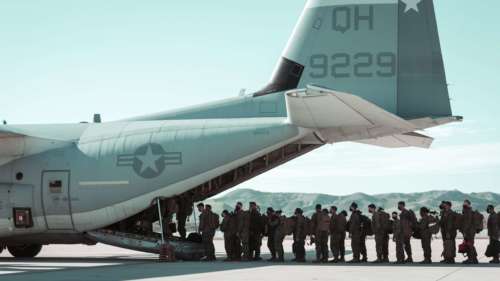Have you been served with divorce papers while on active duty in another country? Or are you considering filing for divorce during deployment?
In either case, a divorce is never an easy step to take – and being so far away from home can make the process even more challenging.
To protect your interests and make the most out of the situation, you should educate yourself about military divorce law generally and divorce during deployment in particular. This brief guide is a good starting point.
If You Have Been Served with Divorce Papers While Deployed
Receiving a divorce petition while on deployment may be overwhelming and even shocking – and it may very well be the last thing you want to deal with. Fortunately, you may be able to postpone the process until you return to the U.S.
The Servicemembers Civil Relief Act (SRCA) protects deployed service members from having to deal with various family law issues and civil obligations, including divorce proceedings, property division, and child support. This is done to allow service members to give their full attention to their duties while on deployment.
Among other things, the SRCA allows you to request a 90-day extension before having to respond to a divorce petition. While this is subject to approval, such requests are often granted.
Alternatively, you may be required to use your vacation time to return to the U.S. and take care of your family issues.
In any case, however, you should consider consulting with a military divorce attorney as soon as possible after being served with the divorce papers – even if you were granted an extension. This way, you can start protecting your interests right away. Otherwise, your spouse may get a considerable head start that could hurt you in the long run.
If You Want to Get a Divorce While Deployed
Do you want to file for divorce yourself? If so, it may be best to wait until your deployment is over and you are safely back home and have easy access to the courhouse.
If you want to start the process as soon as possible, hiring a specialist attorney is paramount. You may need to sign a Power of Attorney form. However, many law firms are able to handle matters for clients who are not local via video conferencing, emails, and document signing apps. Be sure the attorney you choose to work with has the knowledge and capability to work with you effectively from a distance.
Additionally, you will need someone you can trust to represent you and look after your interests at home, whether you expect your spouse to contest the divorce or not.
Remember, your spouse is likely to hire a divorce attorney right after being served with the petition. The chances are that they also have access to important documents – financial paperwork, mortgage and insurance statements, deeds, titles to properties, and more – that you may not be able to source while on deployment.
Another thing to note here is that U.S. courts may not recognize a foreign divorce, which means that filing for divorce overseas may not be a good idea. Typically, it is best to file in the U.S., with the help of a local military divorce attorney.
Divorce During Deployment: Final Thoughts
Whether you are the one initiating the separation or have found yourself on the receiving end of a divorce petition, the process is neither easy nor pleasant for anyone involved. This may be an emotionally taxing time for you, and things could be made worse by your being away from home.
Fortunately, a good military divorce attorney can guide you through the process and provide you with the information you need to protect your rights. Crucially, they can represent you and look out for your assets while you are deployed.
Book your free consultation with a military divorce lawyer today to explore your legal options and protect your interests.


